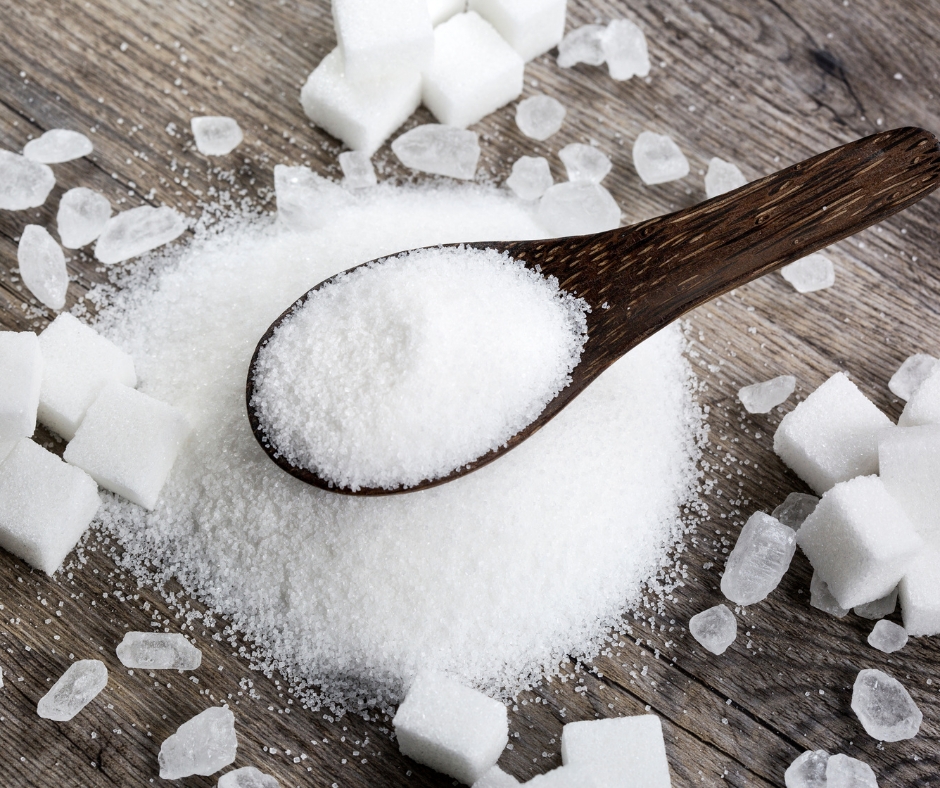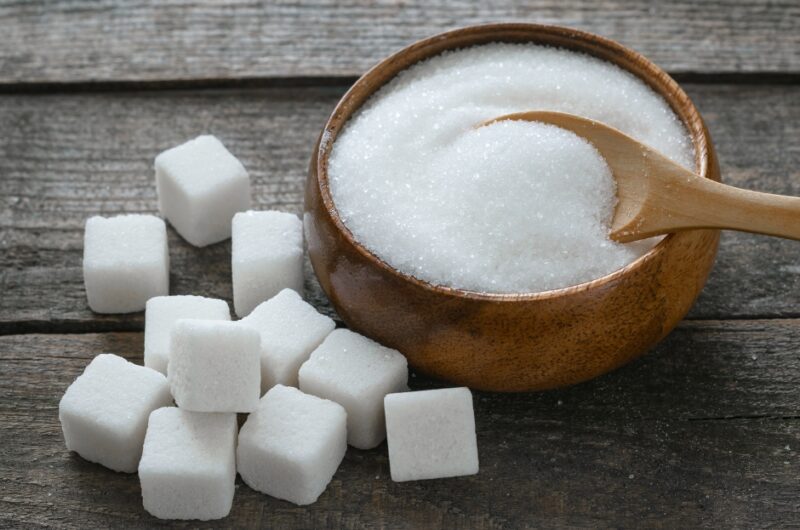Sugar is a ubiquitous ingredient in our daily lives. It’s found in countless processed foods and beverages. While the sweet taste can be enticing, the hidden dangers of sugar in our diet cannot be ignored.
Small amounts of sugar can be enjoyed as part of a balanced diet. However, excessive consumption can have detrimental effects on our health.
In this article, we will investigate the hidden dangers of sugar and shed light on the importance of being mindful of our sugar intake.
The Hidden Dangers of Sugar in Your Diet
There are several potential dangers associated with consuming sugar. For example, weight gain and increased risk of diabetes and heart disease are all associated with high sugar intake.
Weight Gain
One of the primary dangers of excessive sugar consumption is the risk of weight gain and obesity. Sugar is a high-calorie food and offers little nutritional value. When we consume large amounts of sugar, our bodies convert it into fat, leading to an increase in weight over time. Moreover, sugary foods and beverages often lack the necessary nutrients and fiber to keep us feeling full, resulting in overeating and further contributing to weight gain.
Increased Risk Of Type 2 Diabetes
Another hidden danger of sugar in our diet is the increased chance of contracting type 2 diabetes. When we eat or drink sugary treats, our blood sugar levels rise rapidly.
This constant surge of sugar puts a strain on the pancreas, which produces insulin to regulate blood sugar. Over time, the body may not interact with insulin the way it should, leading to insulin resistance and potentially developing type 2 diabetes.
Dental Problems
Sugar poses a significant threat to our dental health. Bacteria in our mouths consume sugar and produce acids. These acids attack tooth enamel, leading to tooth decay and cavities. Regular consumption of high-sugar foods or drinks without proper oral hygiene can result in long-term dental problems, including gum disease and tooth loss.
Higher Risk Of Heart Disease
Excessive sugar consumption is associated with a higher risk of heart disease. Diets high in sugar can contribute to an increase in body weight, high blood pressure, and unhealthy cholesterol levels. All of these factors increase your risk of cardiovascular disease. Additionally, consuming too much sugar may cause inflammation in the body, further exacerbating cardiovascular issues.
Negative Effect On Mental Health
While the physical health risks of excessive sugar consumption are well-documented, its impact on mental health is often overlooked. Studies have shown a connection between high sugar intake and an increased risk of depression as well as anxiety. Consuming too much sugar can lead to blood sugar fluctuations, energy crashes, and altered brain chemistry, negatively affecting your mood and overall mental well-being.
How To Reduce Sugar In Your Diet
Instead of consuming large amounts of sugar, it’s better to use sugar alternatives such as natural sweeteners.
Natural Sweeteners
Instead of using refined sugar, natural sweeteners can be a great substitute. Options like honey, maple syrup, and agave nectar provide sweetness along with additional nutrients. While these alternatives still contain calories and should be used in moderation, they offer a more wholesome option than processed sugar.

Stevia
Stevia is a natural, calorie-free sweetener produced from the stevia plant. It is significantly sweeter than sugar, so only a small amount is needed to achieve the desired sweetness. Stevia has gained popularity as a sugar substitute due to its low glycemic
index, making it suitable for individuals with diabetes or those looking to manage their blood sugar levels.
Artificial Sweeteners
Artificial sweeteners, like sucralose, aspartame, and saccharin, are highly potent sweeteners that provide sweetness without the added calories. They are commonly found in “diet” and or “sugar-free” products. While they can be useful for reducing calorie intake and managing blood sugar levels, it is important to consume them in moderation and be aware of any potential side effects, as some studies have raised concerns about their long-term side effects.
Fruit And Spices
Fruits can add natural sweetness to recipes and dishes without the need for additional sugar. Incorporating ripe bananas, applesauce, or pureed dates into baked goods can enhance flavor while providing fiber and nutrients. Additionally, spices like cinnamon, nutmeg, and vanilla extract can impart a sweet taste to dishes, reducing the need for excessive sugar.
Gradual Reduction
Another effective way to reduce sugar intake is to gradually decrease the amount used in recipes and beverages. Over time, our taste buds can adapt to lower levels of sweetness. By slowly reducing sugar, we can train our palates to appreciate flavors without relying on excessive sweetness.
What Are 5 Negative Effects of Sugar on Your Body
Excessive sugar consumption can have numerous negative effects on the body. Here are five key negative effects of sugar:
Increased Risk of Heart Disease
Excessive sugar intake has been associated with an increased risk of heart disease. Diets high in added sugars are often associated with elevated levels of triglycerides, harmful cholesterol levels, and increased inflammation in the body. These factors can
contribute to the development of cardiovascular diseases, including heart attacks and strokes.
Weight Gain And Obesity
Sugar is high in calories but lacks essential nutrients. Eating excessive quantities of sugar can cause weight gain and lead to obesity. Sugary foods and beverages contain a lot of calories.
Consuming large amounts of sugar can lead to an imbalance in energy consumption. Moreover, sugar-sweetened beverages may not provide the same feeling of fullness as solid foods, leading to overconsumption of calories.
Increased Risk Of Type 2 Diabetes
A sugar-rich diet can increase the risk of developing type 2 diabetes. Regularly consuming sugary foods or drinks can cause chronically elevated blood sugar levels,
leading to insulin resistance. Insulin resistance occurs when cells become less responsive to the hormone insulin. Insulin regulates blood sugar levels. Over time, insulin resistance can progress to type 2 diabetes.

Dental Problems
Sugar is a major contributor to dental problems such as tooth decay and cavities. Bacteria feed on the sugars we eat. They produce acids that attack tooth enamel.
Over time, this can lead to cavities, tooth decay, and potential tooth loss. Proper oral hygiene and limiting sugar intake are essential for maintaining good dental health.
In Summation
While sugar can add flavor to our food and beverages, it comes with hidden dangers when consumed in excess. Weight gain, obesity, increased risk of type 2 diabetes, dental problems, and a higher likelihood of heart disease are some of the significant risks associated with excessive sugar intake.
It is essential to be mindful of the sugar content in our diet and make healthier choices. Opting for whole, unprocessed foods, reducing consumption of sugary beverages, and reading food labels to identify hidden sources of sugar can go a long way in protecting our overall health and well-being. By being aware of the hidden dangers of sugar, we can make informed decisions and take control of our dietary habits for a healthier future.






